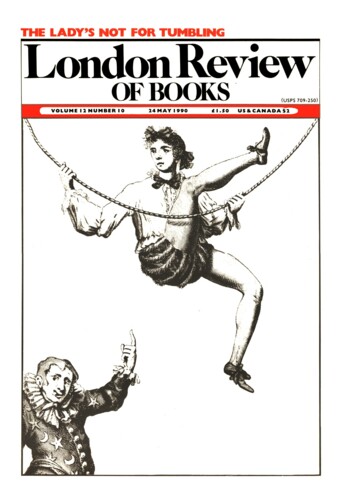Lent is the time for cutting out what’s bad.
I’ll give up going to bed with men who smoke,
for that and other seasons of the year.
Is it the taste? That’s not too bad as long
as I don’t put my tongue into their mouths.
The tiredness of their skin? Their bloodshot eyes?
Is it the smell of fag-ash in my hair
next day? Not really. That can be washed out.
Post-coital light-up is what worries me.
We’ve had each other, then the smoking man
turns desperately seeking something else,
scouring the bedside cupboard, pockets, drawers.
He sighs on finding what he really wants,
then’s silently unfaithful with his fag.
Some keep their little weapons to themselves.
The worst kind start a sort of troilism.
I don’t feel easy with a naked flame
too near my vulnerable naked flesh –
you, me, a cigarette, a smoky kiss.
Out of the corner of one eye I see
a toppling inch of ash above a stub,
while lover-boy is fiddling with my tits –
foreplay designed to set the bed on fire.
Send Letters To:
The Editor
London Review of Books,
28 Little Russell Street
London, WC1A 2HN
letters@lrb.co.uk
Please include name, address, and a telephone number.

